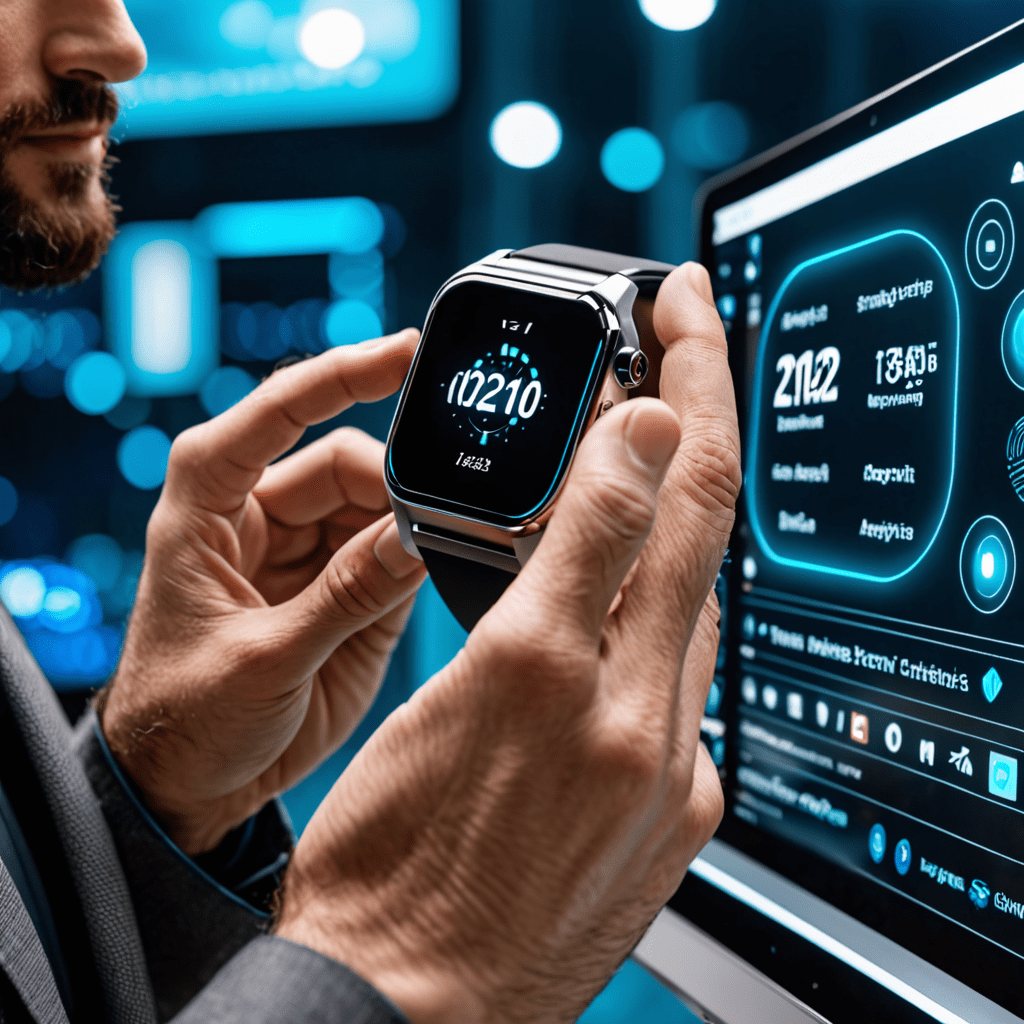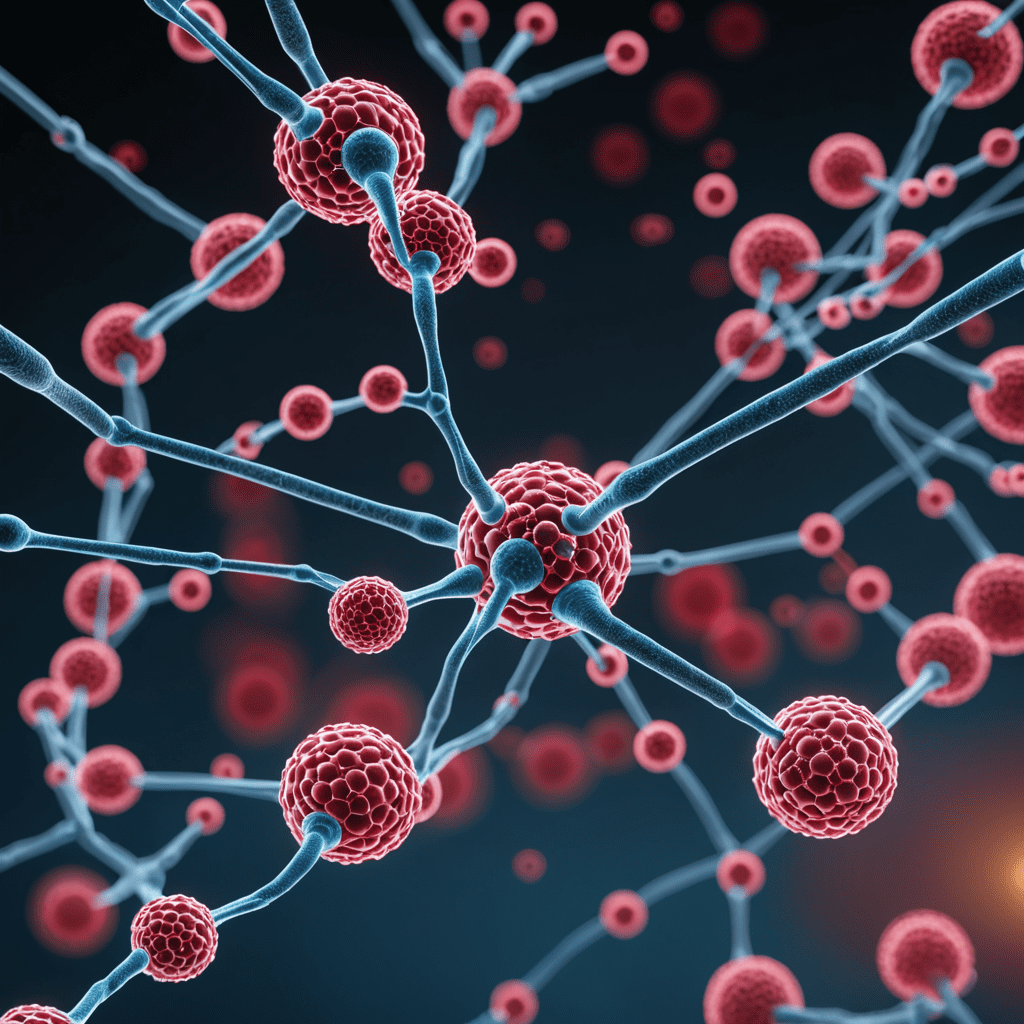
Nanotechnology in Wearable Sensors: Monitoring Health Parameters Effectively
Nanotechnology has revolutionized the field of wearable sensors, offering innovative solutions for monitoring various health parameters. These tiny sensors, integrated into wearable devices, have the potential to provide real-time data that can help individuals track their health more effectively.
The Impact of Nanotechnology in Healthcare
Nanotechnology plays a crucial role in enhancing the capabilities of wearable sensors for monitoring health parameters such as heart rate, blood pressure, glucose levels, and more. By incorporating nanomaterials and nanoscale structures, these sensors can detect and transmit data with high precision and accuracy.
Enhanced Sensitivity and Accuracy
One of the key advantages of nanotechnology in wearable sensors is the enhanced sensitivity and accuracy in monitoring health parameters. The miniature size of nanomaterials allows for more efficient data collection and analysis, leading to more reliable results.
Non-Invasive Monitoring
With the use of nanotechnology, wearable sensors enable non-invasive monitoring of vital signs and other health metrics. This means that individuals can track their health status without the need for frequent and invasive procedures, providing a more comfortable and convenient monitoring experience.
Real-Time Data Analysis
Nanotechnology-enabled wearable sensors facilitate real-time data analysis, allowing for instant feedback on health parameters. This instantaneous data can help individuals make informed decisions about their lifestyle, diet, and exercise routines, ultimately leading to improved health outcomes.
Applications in Chronic Disease Management
Wearable sensors leveraging nanotechnology have significant applications in chronic disease management. Patients with conditions such as diabetes, cardiovascular diseases, and respiratory disorders can benefit from continuous monitoring of relevant health parameters, leading to better management of their health conditions.
Future Prospects and Developments
The integration of nanotechnology in wearable sensors holds immense potential for the future of healthcare monitoring. As research and development in this field continue to advance, we can expect even more sophisticated and user-friendly wearable devices that offer comprehensive health monitoring capabilities.
Conclusion
Nanotechnology in wearable sensors is paving the way for more effective and convenient monitoring of health parameters. By leveraging the power of nanomaterials, these sensors provide enhanced sensitivity, accuracy, and real-time data analysis, offering individuals valuable insights into their health status and promoting proactive healthcare management.
FAQ About Nanotechnology in Wearable Sensors
What is Nanotechnology in Wearable Sensors?
Nanotechnology in wearable sensors involves the use of nano-sized materials to enhance the functionality and performance of health monitoring devices that can be worn on the body.
How Does Nanotechnology Improve Health Parameter Monitoring?
Nanotechnology enables the development of sensors with increased sensitivity, accuracy, and miniaturization, allowing for real-time monitoring of vital health parameters such as heart rate, blood pressure, and glucose levels.
What are the Benefits of Nanotechnology in Wearable Sensors?
Some benefits include improved precision in data collection, non-intrusive monitoring, enhanced comfort for users, and the potential for early detection of health issues through continuous monitoring.
Are Nanotechnology Wearable Sensors Safe to Use?
Yes, nanotechnology wearable sensors undergo rigorous testing to ensure safety and biocompatibility with the human body. These sensors are designed to be non-toxic and non-invasive for users.
How Can Nanotechnology Revolutionize Healthcare with Wearable Sensors?
Nanotechnology in wearable sensors has the potential to revolutionize healthcare by enabling personalized and preventive medicine, remote patient monitoring, and empowering individuals to take control of their health through real-time data insights.


